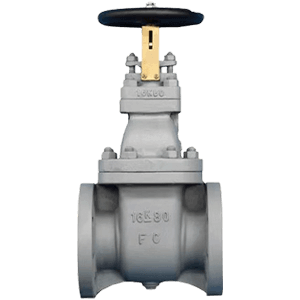In this article, we’ll break down the key differences between forged valves and caste valves, including how each is made, their pros and cons, and which applications they best suit.
What is a Forged Valve
A forged valve is manufactured by shaping metal under high pressure and temperature using a die. This forging process compresses the metal’s internal grain structure, making the resulting product denser and stronger.Typical Materials:Carbon steel,Alloy steel,Stainless steel
Key Features of Forged Valves
-
①Grain flow is aligned with the shape of the valve, increasing strength.
-
②Very low porosity, meaning minimal internal defects or voids.
-
③Suitable for high-pressure and high-temperature applications.
-
④Commonly used in oil & gas, marine, and power plants.
What is a Casting Valve
A casting valve is created by pouring molten metal into a mold, allowing it to cool and solidify into the desired shape. This method is excellent for producing complex geometries or larger valve sizes.Common Materials:Ductile iron,Cast steel,Bronze or brass
Key Features of Casting Valves:
-
①Flexible designs with more complex internal and external shapes.
-
②Ideal for large-size valves and high-volume production.
-
③Cost-effective for certain applications.
Forged Valve VS Casting Valve: Side-by-Side Comparison
| Feature | Forged Valve | Casting Valve |
|---|---|---|
| Manufacturing Process | High-pressure forging | Metal casting into a mold |
| Strength & Durability | Higher tensile strength | Lower strength, but suitable for low/med pressure |
| Porosity | Very low (dense structure) | Potential for internal voids/defects |
| Size Limitation | Best for small-to-medium sizes | Suitable for large-diameter valves |
| Design Complexity | Less flexible | High design flexibility |
| Cost | More expensive | More economical, especially in large volumes |
| Best For | High-pressure, high-temperature, critical applications | General purpose, complex-shaped, low-to-medium pressure use |
Applications in Marine and Industrial Settings
Forged Valves:Main steam lines on ships.Boiler feed systems.Chemical injection lines.High-pressure hydraulic systems
Casting Valves:Seawater piping systems,HVAC piping on marine vessels,Industrial water treatment,Fire protection systems
Why Material Integrity Matters
In harsh environments—like those found in marine, offshore oil rigs, and chemical plants—the material integrity of the valve is critical. Forged valves typically offer better mechanical performance, while cast valves offer cost-efficiency and versatility for less demanding conditions.
Post time: Jul-11-2025

